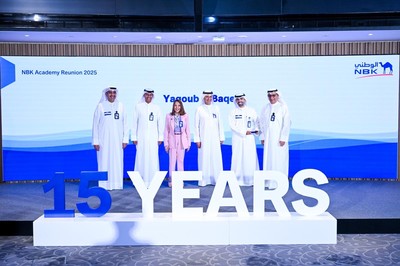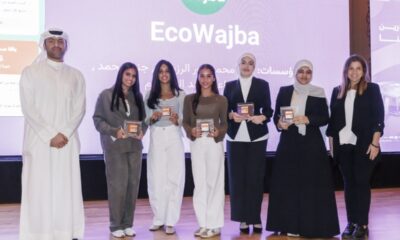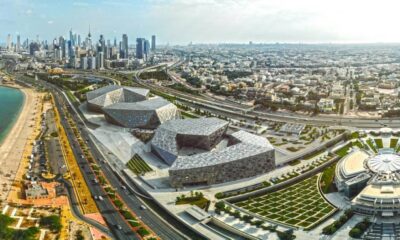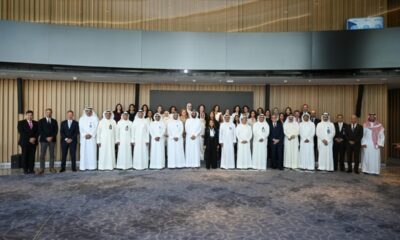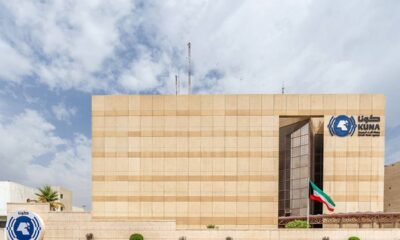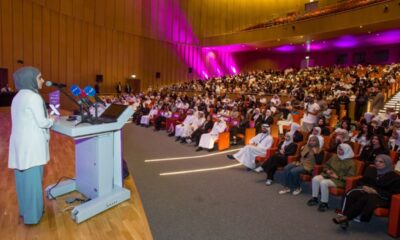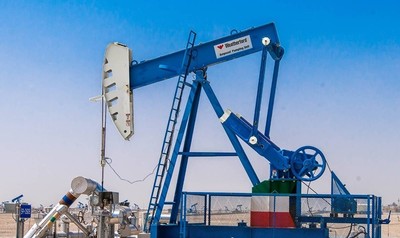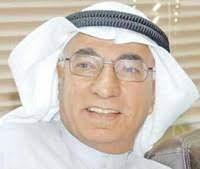KUWAIT CITY, Apr 09: In celebration of 15 years since the inauguration of its Academy, the National Bank of Kuwait organized an exceptional event reuniting in-house NBK Academy graduates who becamestaff members and leaders in the bank, and the other graduates who carried on their careers in other institutions. The number ofwaves reached a total of 30, including the NBK Tech Academy.
During the event, which was held at NBK’s headquarters with the presence of the executive management, a seminar by global advisor and expert in digital transformation Warren Knight was conducted about the leading role of digital transformation, which shed light on the fundamentals of a successful one.
The event also included a discussion panelmoderated by Abdullah Boftain, Managing Partner of Kuwait News, with the participation of the graduates whose careers have remarkably grown whether inside the bank or elsewhere in other institutions. The discussion explored their experiences as to how theAcademy has shaped their professional success and its role in equipping them with the necessary confidence while they navigate their career transitions.
Besides highlighting their professional achievements inside and outside the bank,the aim of this event is to fosterand promote NBK’s value of connection, through whichthe graduates can build bridges, exchange knowledge andexperiences and relive shared memories.
On this occasion, Mr. Emad Al-Ablani, Group Chief Human Resources Officersaid: “We are delighted with this exceptional reunion that gathersall NBKAcademy’s graduates who made remarkable achievements inside and outside NBKbeyond all obstacles and challenges. This day is a testament tothe success of our human capital investment strategy and its vital role in Kuwait’s economy and Kuwait Vision 2035.”
Al-Ablani also added: “The NBK Academy will continue to enrich Kuwait’s national workforce with distinguished talents that contribute to the sustainability of the economy.This Academyechoes our vision towards investing in human capital and preparing the economy with qualifiednational banking leaders as per the newest and highest international standards, and it also reflects our efforts to enhance the sustainable development of national talent and resources, which is a strategic objective and a joined responsibility between the state and its different public and private entities.”
On the program of the Academy, Najla Al-Sager, Head of Talent Management & Learning,indicated that the efforts to develop itscontent are continuous, as it aims to keep up with the newest research and international trends in the banking and business sectors.
She also noted that NBK will strive to maintain its pioneering position at the forefront of institutions that continue to attract and upskill national talents to prepare them for the banking sector, further highlighting that the bank has the highest national employee retention rate, and it stands out as the private sector employer of choice and top recruiter of national talent and professionals.
On another note, the attending graduates expressed their deepest joy with this exceptional initiative organized by NBK, describing it as a priceless opportunity to exchange experiences and strengthen communication among the different waves.
Moreover, several distinctive graduates received awards and honorary trophies, such as the outstanding Alumnus award, NBK Academy Champion award, the Community Builder award, Entrepreneur award, Inspirational Leader award.
In the past year, NBK has launched the NBK Tech Academy, in line with its commitment to keep up with the digital advancement in the fields of technology and data and information security. It stands as the first of its kind in Kuwait, dedicated to advancing digital technologies and data systems. NBK Tech Academy features a professional training program designed to prepare young national talents in fields including fintech, data analytics, ethics in technology, cyber security, fundamentals of digital payments, digital innovation, artificial intelligence, scripting and programming, fundamentals of codifications, and finance for non-finance professionals.

 Politics19 hours ago
Politics19 hours ago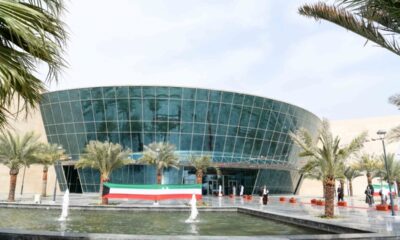
 Latest News18 hours ago
Latest News18 hours ago
 Business23 hours ago
Business23 hours ago
 Business19 hours ago
Business19 hours ago
 Politics18 hours ago
Politics18 hours ago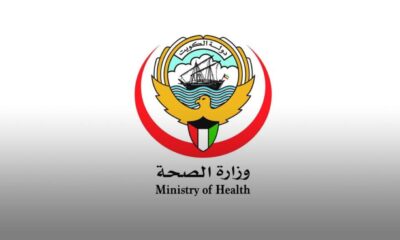
 Latest News17 hours ago
Latest News17 hours ago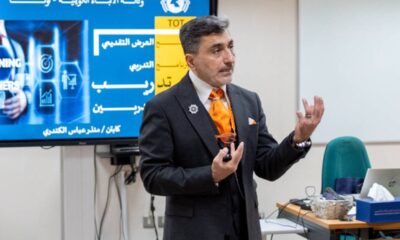
 Latest News22 hours ago
Latest News22 hours ago
 Politics16 hours ago
Politics16 hours ago
